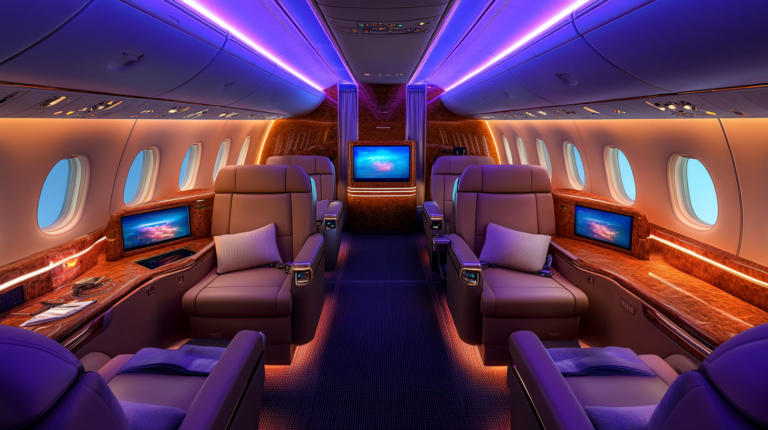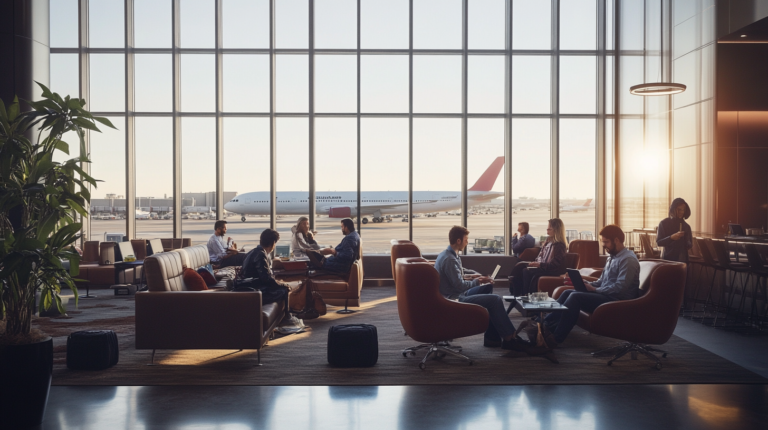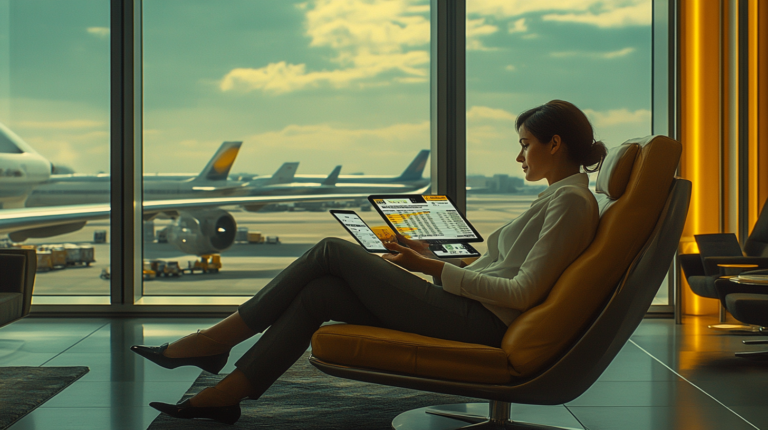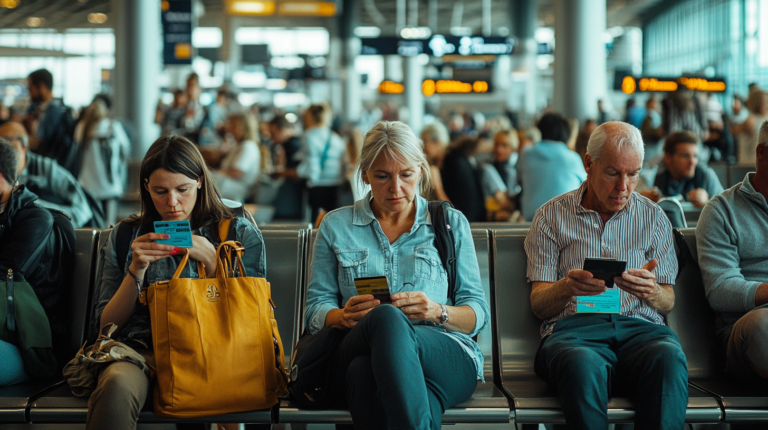United Airlines Integrates Apple AirTags: Revolutionizing Luggage Tracking in the Airline Industry
In a groundbreaking and industry-first move, United Airlines has formed a strategic partnership with Apple to integrate AirTags into its baggage tracking system. This innovative collaboration is set to transform the way passengers track their checked luggage, offering real-time monitoring through Apple’s Find My network.
As the holiday season approaches, United’s pioneering initiative aims to alleviate the common anxiety associated with lost or delayed baggage, enhancing the overall travel experience.
United Airlines Pioneers AirTag Integration in a Strategic Partnership with Apple
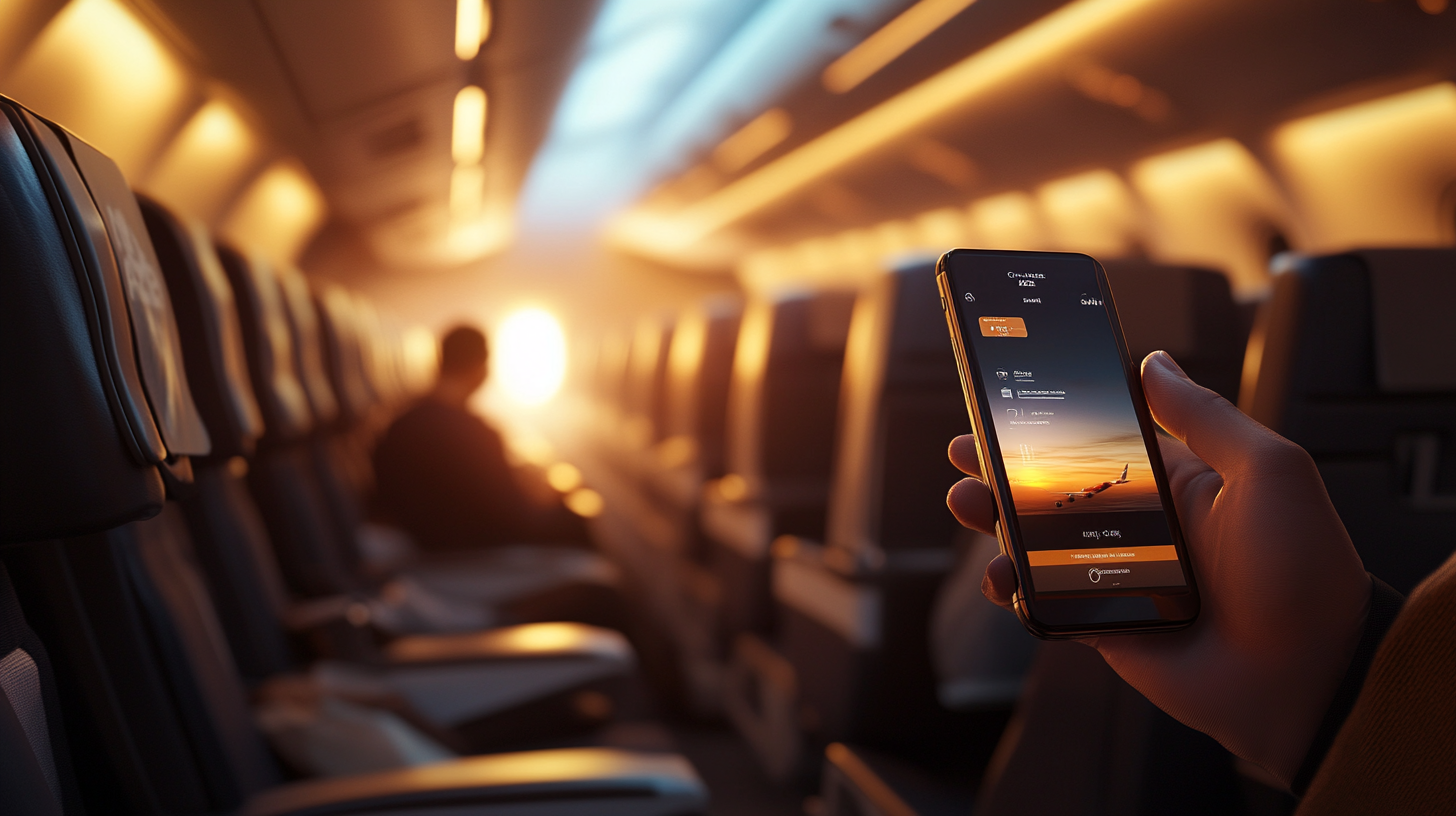
United Airlines is taking a bold step by becoming the first major carrier to fully integrate Apple’s AirTag technology into its operations. This strategic partnership allows customers to share the precise location of their checked luggage directly with United’s customer service team.
By utilizing the extensive Find My network—which leverages a crowdsourced system of millions of Apple devices globally—passengers can have unprecedented peace of mind, knowing that their belongings are traceable at all times.
The decision to adopt AirTags comes in response to increasing demand for enhanced luggage tracking solutions. With past disruptions causing significant baggage mishandling, United aims to reduce such incidents and improve overall customer satisfaction.
By embracing this technology, the airline sets a new standard for passenger experience and operational efficiency, potentially reshaping industry expectations.
This move is particularly significant as it positions United Airlines at the forefront of technological innovation within the airline industry. By integrating AirTags, United not only improves its services but also influences industry trends, prompting other airlines to consider similar advancements.
It’s a strategic move that underscores United’s commitment to leveraging cutting-edge technology to enhance customer service.
Passengers can now travel with greater confidence, especially during peak travel seasons when luggage mishandling rates typically increase. United’s proactive approach addresses these concerns head-on, offering a tangible solution backed by robust technology.
This initiative is expected to mitigate the stress associated with air travel, particularly in relation to luggage tracking and retrieval.
How the AirTag Integration Works: A Step-by-Step Guide for Passengers
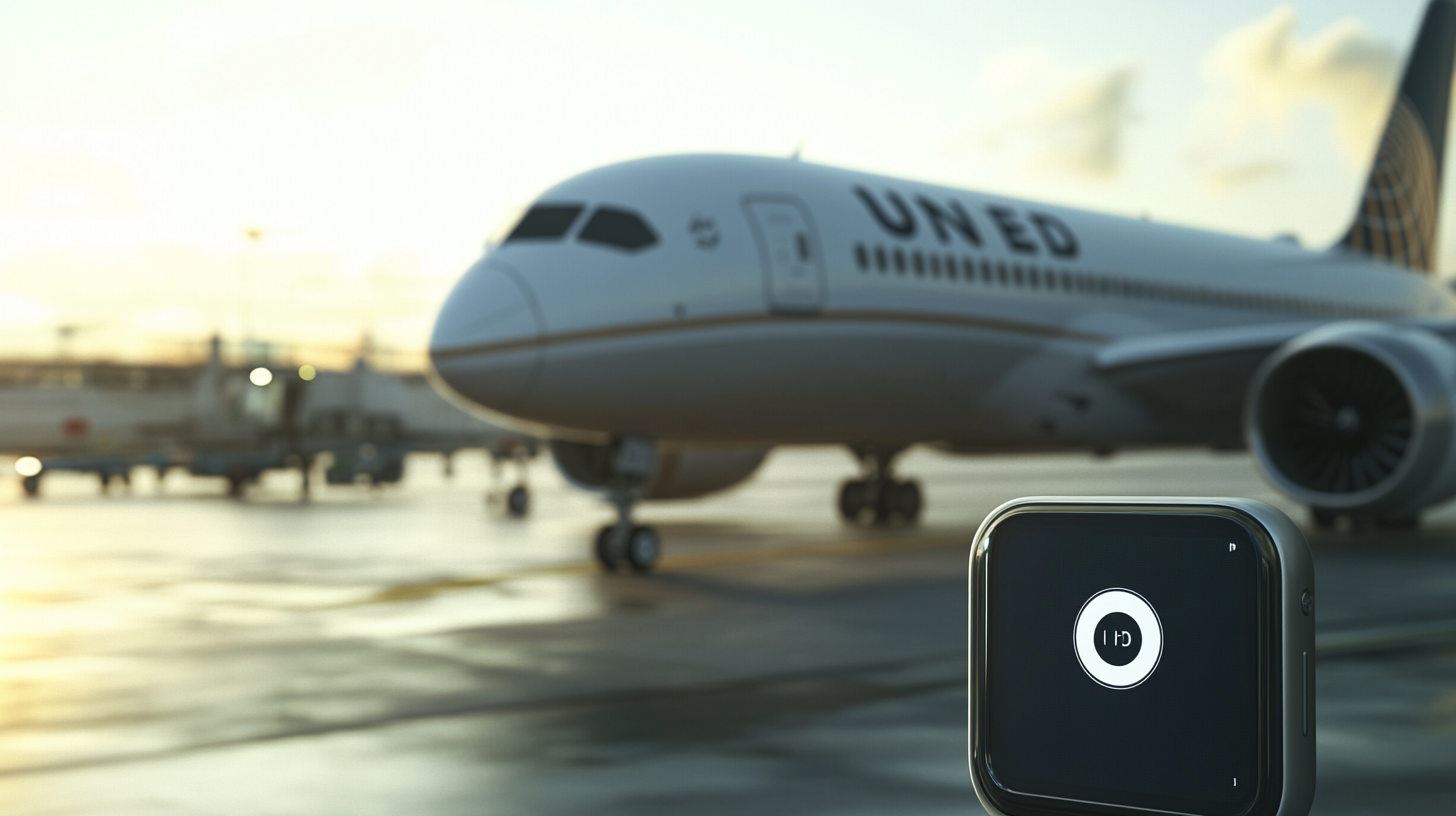
The process of tracking luggage with AirTags on United Airlines is seamless and user-friendly. Passengers need to have the latest version of the United app and ensure their iPhone is updated to iOS 17.2 or later to access the new feature called “Share Item Location.”
Here’s how it works:
- When a bag goes missing, the customer initiates a delayed baggage report through the United app.
- The app provides an option to share the AirTag’s location with United’s customer service.
- This sharing is facilitated through Apple’s Find My app, where the user generates a secure, end-to-end encrypted link.
- The customer service team at United can then view the bag’s location on an interactive map, enabling them to take swift action to recover the luggage.
The shared location link is temporary, expiring after seven days or once the bag is returned, ensuring privacy. This integration leverages the vast network of Apple devices participating in the Find My network. This crowdsourced system anonymously detects the Bluetooth signals of lost items and reports their location back to the owner.
For United, accessing this data means significantly improving their ability to locate and reunite passengers with their belongings efficiently.
Importantly, this feature emphasizes security and privacy. The location data shared with United is encrypted, and the airline cannot access any other information on the passenger’s device. The integration adheres to Apple’s strict privacy policies, ensuring that users’ personal data remains protected.
This commitment to privacy is crucial in building trust with passengers utilizing the new feature.
Enhancing the Travel Experience: United’s Commitment to Customer Satisfaction
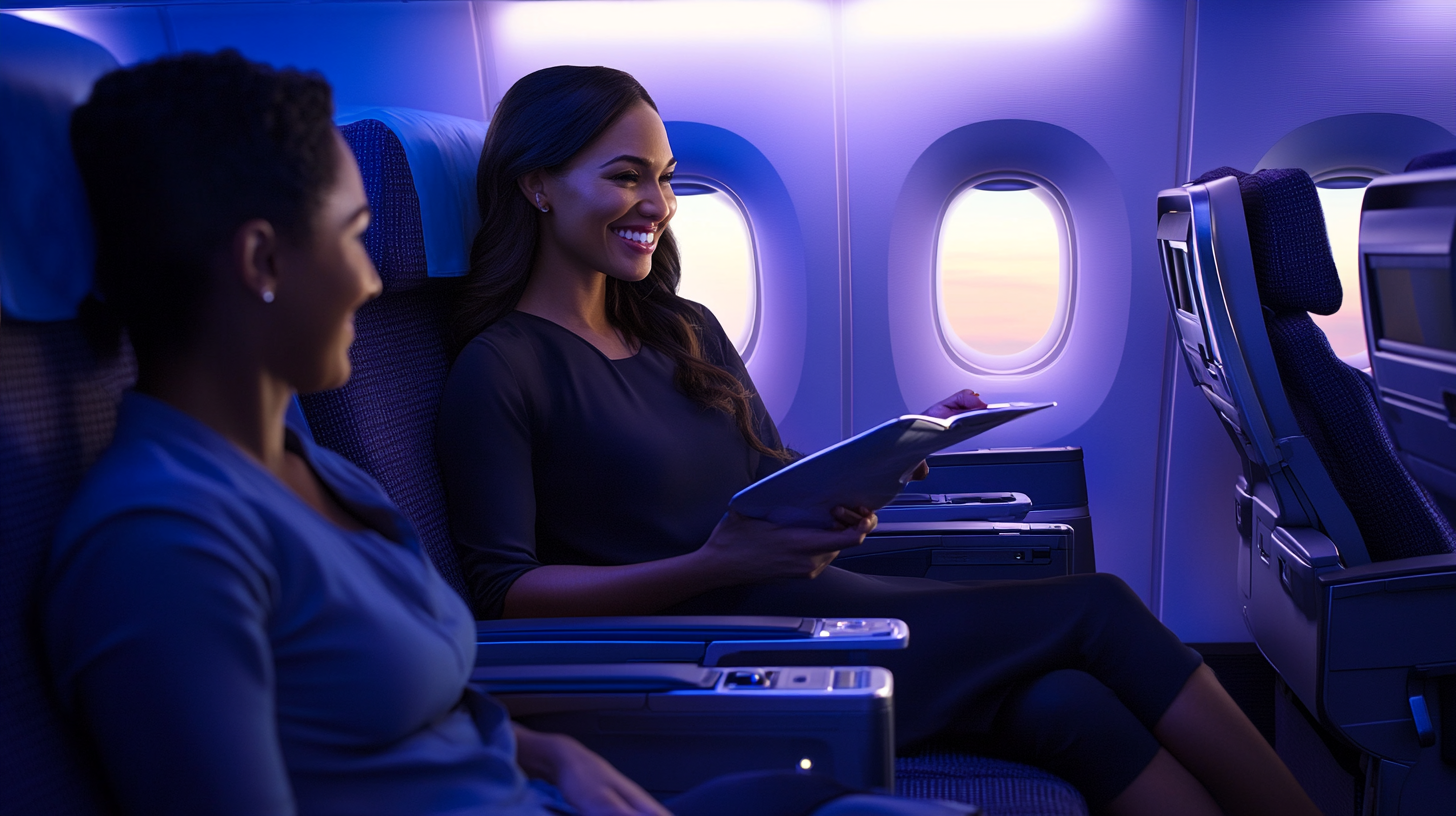
The integration of AirTags into United Airlines’ operations is a significant step toward enhancing the overall travel experience. For passengers, the ability to track their luggage provides a sense of control and reduces the stress associated with air travel.
Real-time updates on the whereabouts of their bags mean that travelers can focus on enjoying their journey rather than worrying about lost items.
This advancement is particularly beneficial during the holiday season and other peak travel times when airports are busier, and the likelihood of luggage mishandling increases. By offering this service, United demonstrates a commitment to customer satisfaction and operational excellence.
It also presents an opportunity for the airline to differentiate itself in a competitive market by offering unique value-added services.
Moreover, the feature is not limited to the app; passengers can also share the AirTag’s location via text notifications, providing flexibility in how they communicate with the airline. This convenience reflects United’s focus on user-friendly solutions that cater to the needs of modern travelers.
The airline’s investment in such technologies underscores its dedication to improving every aspect of the passenger journey.
The integration also aligns with United’s broader strategy of leveraging technology to improve services. Previous innovations include live flight updates, real-time disturbance notifications, and AI-powered weather updates.
Together, these efforts position United as a tech-forward airline dedicated to enhancing every aspect of air travel.
Privacy and Security Measures: Protecting Passenger Data

Privacy and security are paramount in United Airlines’ integration of AirTag technology. The process is designed with robust safeguards to protect passengers’ personal information. When sharing an AirTag’s location, the data is encrypted end-to-end, ensuring that only the customer and authorized United personnel can access it.
The location-sharing feature automatically deactivates once the luggage is retrieved or after seven days, whichever comes first. This time-bound access prevents unnecessary exposure of location data and adheres to best practices in data privacy.
United cannot access any other information on the passenger’s device, reinforcing the focus on confidentiality.
Apple’s stringent privacy policies complement United’s efforts. The Find My network is built to protect user data, with all communications anonymized and encrypted. Even within the extensive network of devices, individual identities and data remain secure.
This collaboration between United and Apple highlights a shared commitment to user privacy and data protection.
By integrating these measures, United addresses potential concerns about data misuse. Passengers can confidently use the AirTag feature, knowing that their privacy is not compromised.
This trust is essential for the widespread adoption of the technology and for setting industry standards in privacy protection.
The Broader Impact on the Airline Industry: Setting a New Standard

United Airlines’ adoption of AirTag technology has significant implications for the broader airline industry. As the first major carrier to implement this integration, United is setting a precedent for other airlines to follow.
This move highlights the importance of embracing innovative solutions to enhance passenger experience and operational efficiency.
The potential ripple effect of United’s adoption of AirTags on global airline operations is substantial. Other airlines have already signaled intentions to adopt similar technologies.
Carriers such as Delta Air Lines, British Airways, and Air Canada are exploring integrations with Apple’s Find My network. United’s early adoption may accelerate these plans, leading to a more widespread use of personal tracking devices in air travel.
This trend reflects a shift in how airlines address luggage handling challenges. Technologies like AirTags enable airlines to reduce instances of lost baggage, which, according to industry reports, affect a small but significant percentage of passengers.
By improving tracking capabilities, airlines can decrease lost luggage rates and associated costs.
The integration also enhances accountability and transparency within airline operations. Passengers equipped with tracking devices can independently verify the location of their luggage, fostering trust between travelers and airlines.
This transparency could lead to increased customer loyalty and a competitive advantage in the market.
Future Developments and Other Airlines: A New Era of Luggage Tracking
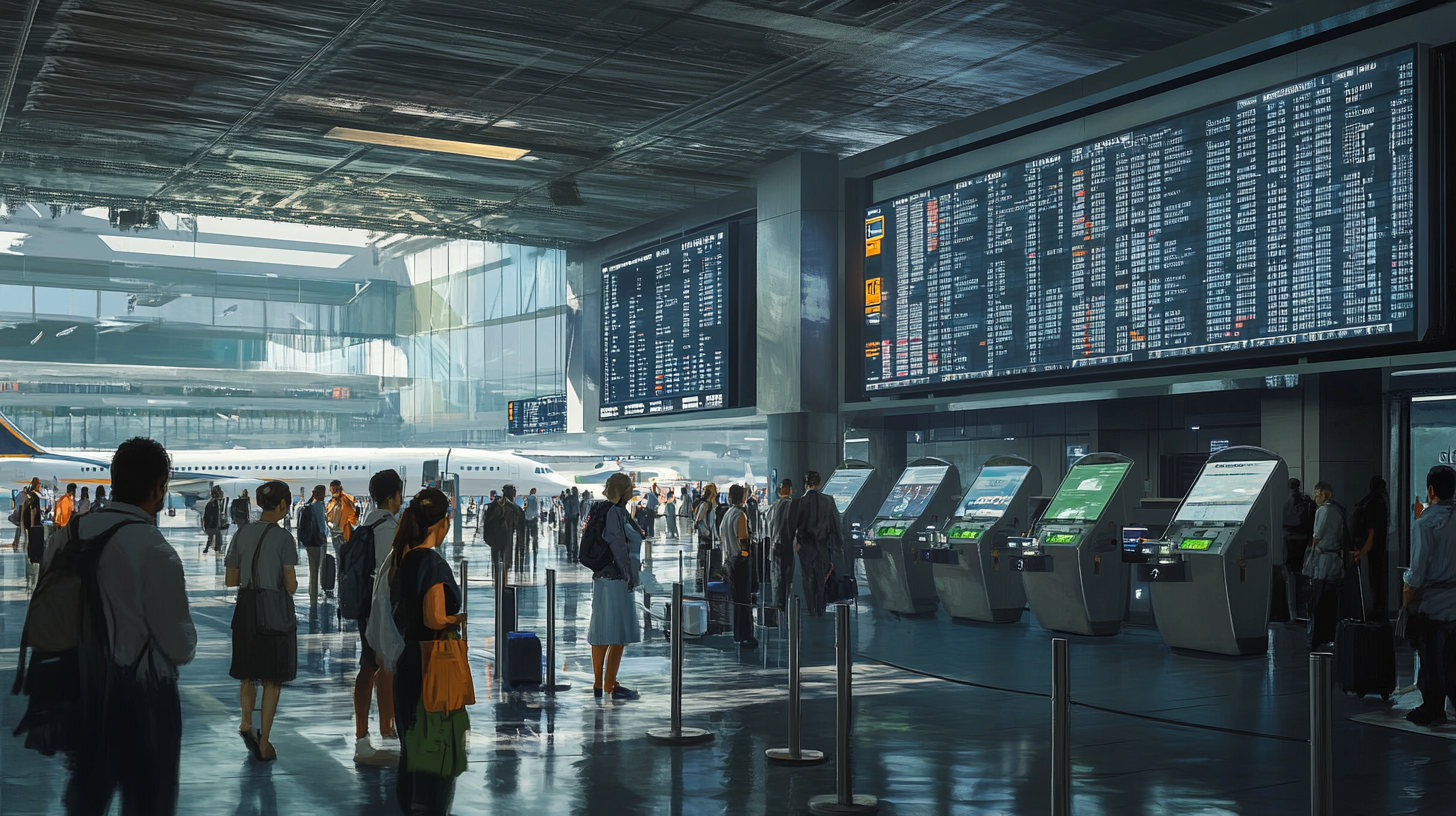
Looking ahead, the integration of AirTag technology by United Airlines may herald a new era in baggage handling and tracking. As more airlines adopt similar technologies, we can expect industry-wide improvements in how lost or delayed luggage is managed.
The competition may spur further innovation, leading to even more advanced solutions.
For instance, the potential integration with other tracking devices and platforms could provide passengers with a range of options compatible with different operating systems and devices. This inclusivity would ensure that a broader customer base benefits from enhanced luggage tracking.
Air Canada and Delta have announced plans to implement Apple’s AirTag integration, with rollouts expected in the near future. This expansion indicates a growing recognition of the value such technology brings to both passengers and airlines.
As adoption increases, it may become a standard feature across the industry.
Moreover, airlines might explore partnerships with other tech companies to develop proprietary tracking solutions or enhance existing ones. These collaborations could lead to innovations that further improve efficiency, security, and passenger satisfaction.
The integration of technologies like United Airlines’ AirTag partnership as a catalyst for technological innovation in aviation underscores the dynamic nature of the airline industry.
Embracing such advancements can lead to more efficient operations and a better travel experience for passengers worldwide.
Conclusion: United Airlines Leads the Way in Technology Integration
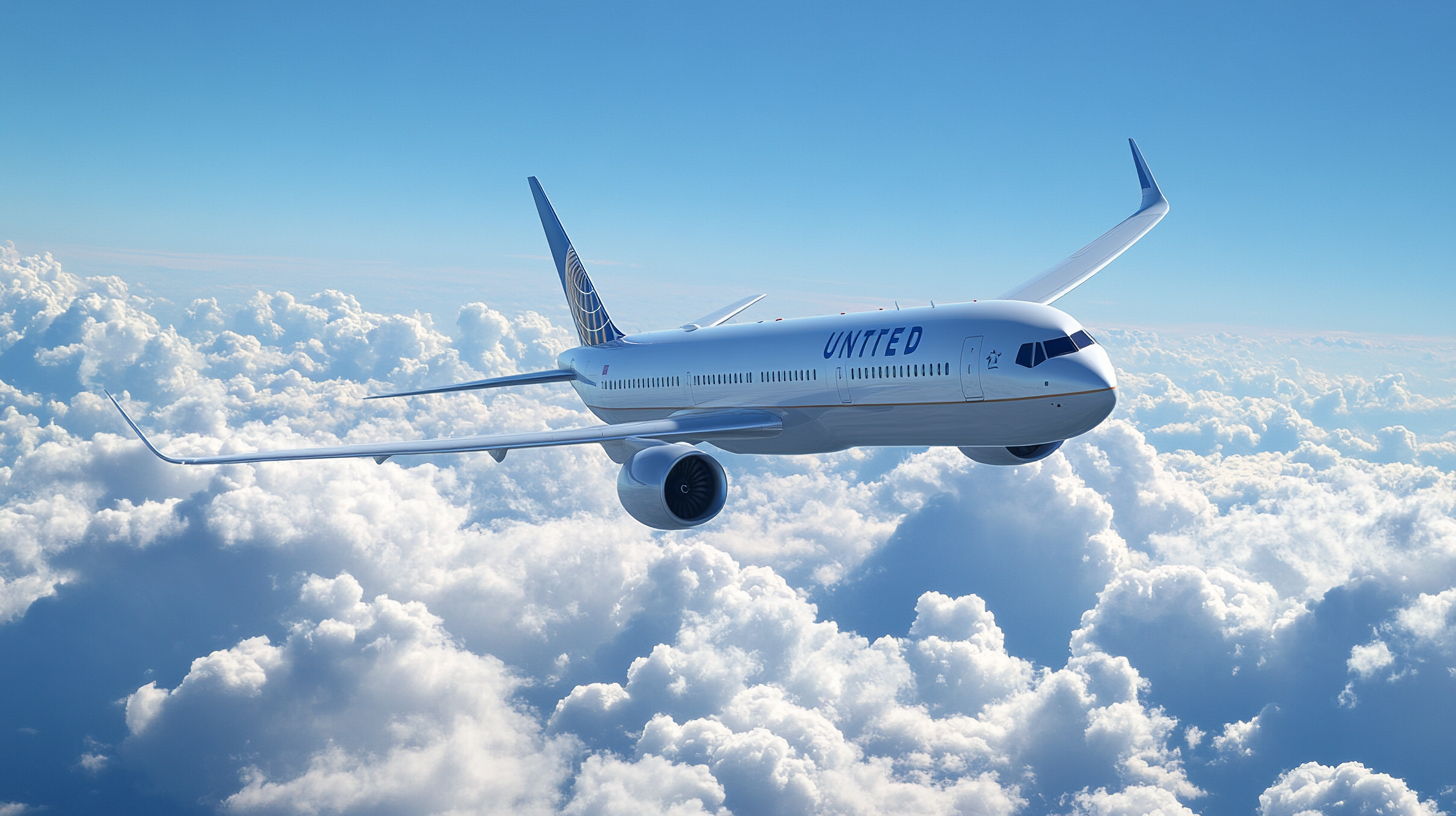
United Airlines’ integration of Apple AirTags marks a significant milestone in air travel, offering passengers unprecedented control over their luggage tracking. By leveraging Apple’s established Find My network, United enhances its customer service, reduces the stress associated with lost baggage, and sets a new industry standard.
This initiative reflects a broader trend toward technological innovation in the airline industry. As other carriers follow suit, passengers worldwide will benefit from improved tracking and peace of mind. United’s commitment to embracing cutting-edge solutions underscores its dedication to enhancing the travel experience.
In an era where technology continues to transform industries, United Airlines’ partnership with Apple exemplifies how collaboration can lead to meaningful advancements. Travelers can look forward to more secure, efficient, and enjoyable journeys as airlines continue to innovate and prioritize customer needs.
For more insights into the convergence of technology and air travel, and how it impacts your flying experience, visit us at milesBUZZ. Stay informed with the latest trends and be ready for your next journey!


